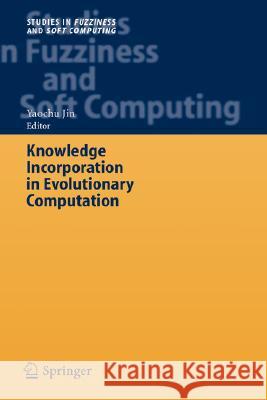Knowledge Incorporation in Evolutionary Computation » książka
Knowledge Incorporation in Evolutionary Computation
ISBN-13: 9783540229025 / Angielski / Twarda / 2004 / 548 str.
Incorporation of a priori knowledge, such as expert knowledge, meta-heuristics and human preferences, as well as domain knowledge acquired during evolu- tionary search, into evolutionary algorithms has received increasing interest in the recent years. It has been shown from various motivations that knowl- edge incorporation into evolutionary search is able to significantly improve search efficiency. However, results on knowledge incorporation in evolution- ary computation have been scattered in a wide range of research areas and a systematic handling of this important topic in evolutionary computation still lacks. This edited book is a first attempt to put together the state-of-art and re- cent advances on knowledge incorporation in evolutionary computation within a unified framework. Existing methods for knowledge incorporation are di- vided into the following five categories according to the functionality of the incorporated knowledge in the evolutionary algorithms. 1. Knowledge incorporation in representation, population initialization, - combination and mutation. 2. Knowledge incorporation in selection and reproduction. 3. Knowledge incorporation in fitness evaluations. 4. Knowledge incorporation through life-time learning and human-computer interactions. 5. Incorporation of human preferences in multi-objective evolutionary com- putation. The intended readers of this book are graduate students, researchers and practitioners in all fields of science and engineering who are interested in evolutionary computation. The book is divided into six parts. Part I contains one introductory chapter titled "A selected introduction to evolutionary computation" by Yao, which presents a concise but insightful introduction to evolutionary computation.











